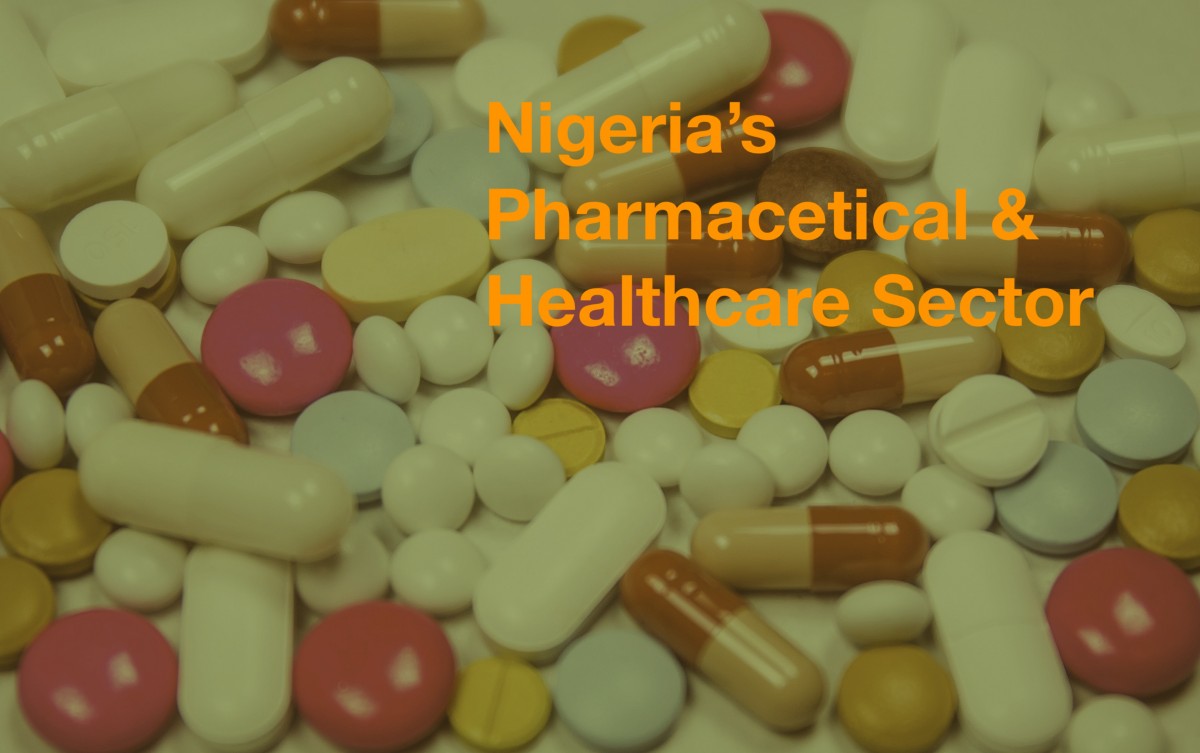Healthcare in Nigeria is a growing sector that boasts both challenges and opportunities for multinational companies. In an effort to succeed in either healthcare or pharmaceutical industries as a new entrant, it is imperative that you gain an understanding of both sectors so that you can navigate the terrain effectively.
Healthcare
Of all the industries we included in our sector analysis, healthcare in Nigeria is the most pluralistic, as it is split between the public and private sector. According to the World Bank, 3.6% of Nigeria’s GDP is spent on healthcare, thereby putting the healthcare market (both public and private) at approximately $14.6 Billion.
Healthcare in Nigeria is mainly driven by the public sector. Currently, 66 percent of the country’s 34,000 health facilities are owned and run by the government.
The private sector is comprised of clinics, hospitals, diagnostics centers, pharmacies, and multi-specialist hospitals that provide a more premium service (compared to the public sector facilities) to those who can afford it.
The private health sector accounts for 70 – 75% of the total health expenditure in the country, meanwhile, the larger health facilities with over 100 beds are inadequately-funded public sector facilities. This mismatch of well-run medical facilities and the needs of the populace is the reason why Nigerians spend $1 billion on medical tourism, resulting in a loss of 3.7 million patient treatments annually.
There are both short-term and long-term opportunities in this market, as more consolidation happens with the private healthcare facilities to establish bigger, well-equipped facilities to match the medical demands of Nigerians. Recently, there has been a rise in HMOs (health insurance service providers), as most patients continue to pay out-of-pocket for services; 72% of total health expenditure is currently out-of-pocket expenditure.
Some of the other short-term opportunities include the supply of properly designed medical devices and equipment to establishments that need these devices and are willing to take on these capital expenditures. Furthermore, foreign entities have the opportunity to capitalize on Nigerians’ trust of foreign healthcare systems, as an interested client base already exists.
Recent challenges with healthcare in Nigeria stems from the lack of trust Nigerians have in the local healthcare system, which has contributed to citizens frequently seeking care abroad. Nigeria currently loses $1 billion annually to medical tourism. Also, the lack of proper funding for both public and private healthcare providers that serve the majority of the population is a major challenge.
These economic conditions combined with social factors, such as poor hygiene, poor waste management, and a lack of drainage systems causing communicable diseases and disease outbreaks – particularly in urban areas, make for an inadequate healthcare sector that cannot fully meet the needs of the market.
These issues are also compounded by poorly-trained medical staff at hospitals that are not highly-motivated because of the sparse monetary compensation for health workers in the country. All of these factors contribute to why Nigeria is ranked 187th out of 190 countries, according to WHO’s Health System performance for 190 countries.
Pharmaceuticals
In 2016, the pharmaceutical industry was valued as a $1.4 billion market. The value of the Nigerian pharmaceutical market has the ability to rise by as much as 9 percent a year over the next eight years to reach $3.6 billion by 2026. In fact, analysts believe that Nigeria could contribute between $1.9 billion and $2.2 billion to pharma sales growth globally, 55 percent of it from prescription drugs by 2026.
Despite this industry’s rapid growth, there are still a few challenges that the sector is dealing with amongst the other industries in Nigeria. For example, health infrastructure in Nigeria is not fully developed and varies significantly between large cities and more rural areas. Financing for healthcare in Nigeria is also a barrier to market access for most citizens, as most spending on healthcare services is done so out-of-pocket.
Also, the pharmaceutical retail market is still mostly fragmented with neighborhood pharmacies dispersed across the country. Besides the more well-known pharmaceutical retail brands in Nigeria, such as Medplus and Healthplus, there are still opportunities for a more consolidated pharmaceutical retail experience for Nigerian citizens.
One major challenge deals with the counterfeits and parallel imports that are in competition with registered drugs due to Nigeria’s predominantly informal distribution and retail networks, which makes it easier for such transactions to take place. This can prove to be harmful to pharmaceutical companies looking to get fair and adequate returns on their investments by charging the full market value for their drugs.
Suppliers of high-quality, authentic medications face their own challenges. One of the major challenges that multinationals supplying pharmaceuticals in the Nigerian market face is the long regulatory process for registering products in Nigeria. With long lead times in the drug-registration process, some companies miss out on market opportunities while waiting for their drugs to be approved for sale in the Nigerian market.
Conclusion
With a poorly funded healthcare system for 186 million citizens, the challenges Nigerians face in this sector are, unfortunately, a matter of life-or-death for a large portion of the population. Making healthcare a priority will take a lot of coordination among the Nigerian government, private organizations, and the general populace.
With that said, these challenges do present opportunities for establishments looking to solve serious problems. Furthermore, there is significant value that can be created for organizations, which involves increasing and maximizing the healthcare standards for Nigerians. Healthcare standards can ultimately be raised by firms understanding the local landscape and tackling some of the challenges listed above.

